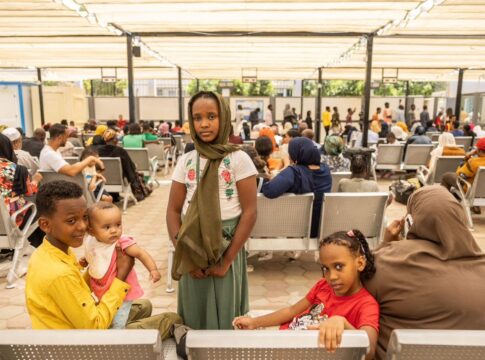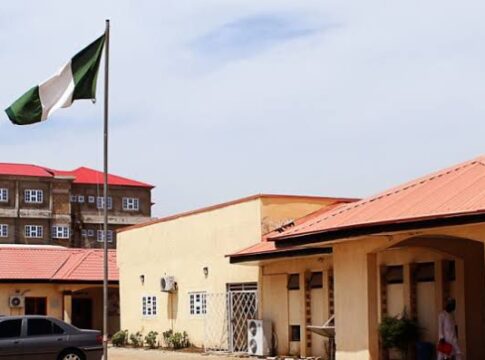Egypt is facing unprecedented pressure as over 1.2 million Sudanese refugees have fled across its borders since a brutal conflict erupted in Sudan in April 2023, according to the United Nations High Commissioner for Refugees (UNHCR).
Each day, hundreds of Sudanese citizens make the arduous journey into Egypt, escaping violence that has already displaced over 11 million people and left tens of thousands dead. With Sudan in turmoil, Egypt has emerged as the largest host of Sudanese refugees, accommodating nearly two-thirds of all Sudanese fleeing abroad, UNHCR data reveals.
The mass migration has tested Egypt’s capacity to manage the humanitarian crisis, impacting public services, infrastructure, and resources in local communities. “The burden on Egypt is unsustainable and requires immediate and substantial international assistance to ensure the well-being of those affected,” stressed Hanan Hamdan, UNHCR’s representative to Egypt and the Arab League. Hamdan urged global stakeholders to step up aid efforts, emphasizing that Egypt’s support infrastructure, though resilient, is now critically overstretched.
A September 2024 UNHCR report showed that despite initial support, the funding required to maintain refugee assistance is falling short. Of the $2.7 billion estimated for the Sudan Humanitarian Response Plan 2024, only $1.52 billion—or 56.3%—has been secured, leaving a significant funding gap. This shortfall threatens the sustainability of critical services like housing, healthcare, and food distribution that Egypt is providing to incoming refugees.
READ MORE: The Future of Money as a Medium of Exchange: The Roles of Technology
The Egyptian government, initially welcoming Sudanese refugees with waived visa requirements for women, children, and elderly men, has since tightened entry controls to manage the surge. Visa requirements were reintroduced just a month after the conflict began, and by September, further restrictions mandated security clearance and consular visas for all Sudanese arrivals. These measures have not stemmed the flow entirely, with many refugees opting for irregular and perilous border crossings.
One refugee, 27-year-old Raga Ahmed Abdel Rahman, described a harrowing journey she undertook in August in an AFP report, traveling with 16 others in a pickup truck and paying nearly 500,000 Sudanese pounds ($830) for the passage. “It was exhausting and terrifying,” she shared, recounting the 36-hour ordeal across the desert, where they faced the constant threat of interception by Sudanese paramilitary forces. “We were constantly afraid of being stopped by RSF forces,” Abdel Rahman added, referring to the feared Rapid Support Forces embroiled in Sudan’s internal conflict.
UNHCR estimates indicate that Sudanese refugees now make up the largest segment of Egypt’s refugee population, which also includes nationals from Syria, South Sudan, and Eritrea, among others. Egypt is currently home to 546,746 Sudanese refugees officially registered with UNHCR, and with hundreds arriving daily, many remain unregistered and in need of assistance. The cumulative impact on Egypt’s resources is immense, stretching already limited public services.
In response, the UNHCR is calling for an urgent increase in international aid, not only to cover immediate needs but also to fund longer-term programs aimed at integrating refugees. “We are calling on the international community to support Egypt’s extraordinary humanitarian efforts,” Hamdan stated. She highlighted the need for both financial assistance and logistical support to alleviate Egypt’s burden, emphasizing that sustainable solutions, such as resettlement in third countries, could offer Sudanese refugees a path to stability.
The agency warns that without increased funding, essential programs may face cuts, which could worsen conditions for both refugees and Egyptian host communities. With no end to Sudan’s conflict in sight, Egypt remains a critical refuge, though it is increasingly challenged by the ongoing crisis. UNHCR has underscored the need for global solidarity, urging governments, international organizations, and donors worldwide to take immediate action to prevent further strain on Egypt’s resources.




